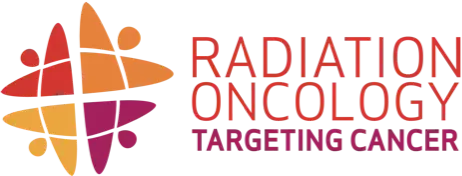Keloid Scarring
Keloid scarring is when a cut or injury to the skin heals in a way that makes a raised bump or lump on the skin.
It can happen when the skin makes too much healing tissue, called collagen, making the bump bigger than the original cut or injury.
Keloid scars are raised, shiny, and smooth bumps on the skin. They can be red, pink, or darker than the surrounding skin. They can also be itchy and tender.
Radiation Therapy and Keloid Scarring
The best person to talk to about radiation therapy for keloid scarring is a radiation oncologist. A radiation oncologist is a specialist doctor who is part of the team that takes care of people having radiation therapy.
You can ask your doctor for a referral to a radiation oncologist to learn if radiation therapy is an option for you.
The Treatment Team
Doctors make a treatment plan for each person based on:
- the type of cancer
- where the cancer is
- what other treatments have been tried
- the person’s health.
Treatment can include radiation therapy or surgery. Doctors often give radiation therapy and surgery if the tumour is high risk.
Sometimes, doctors offer chemotherapy with radiation therapy.
The type of treatment a person gets is worked out by a team of doctors and health professionals often called a Multidisciplinary Team.
A highly trained radiation oncology team takes care of people having radiation therapy. This includes radiation oncologists, radiation therapists, medical physicists and radiation oncology nurses.
Treatments for Keloid Scarring
Treatments for keloid scarring aim to reduce the size and appearance of the raised bump on the skin. Your doctor may try a few different treatments to reduce swelling and try radiation therapy if other options don’t work.
Radiation therapy treats keloid scarring by targeting the affected area with high-energy x-ray beams. This is called External Beam Radiation Therapy. These beams shrink and flatten the raised bump on the skin caused by the keloid scar.
The radiation works by stopping the excess skin cells from growing and making the scar smaller and less noticeable. People are usually treated over a few sessions.
General Information About Side Effects of Radiation Therapy
Radiation therapy is more effective with fewer side effects than ever before.
Recent advances mean radiation oncologists can effectively treat the cancer while getting less radiation on healthy body parts. This means much fewer side effects.
Side effects from radiation therapy vary between people, even for those having the same treatment.
While some people feel no side effects, some feel mild side effects, such as tiredness or skin redness during and/or just after treatment. These usually get better within a few weeks.
The treatment team will offer advice and medicine to help with side effects.
Serious side effects that start later (months to years after the radiation therapy) are rare.
Before starting treatment, your radiation oncologist will talk to you about side effects and answer your questions.
The side effects of radiation treatment can be split into 2 groups:
- Early side effects which occur during and shortly after radiation treatment.
- Late side effects which can occur months to years after radiation treatment.
For more information, go to the Potential Side Effects page.
Early Side Effects of Radiation Therapy for Keloid Scarring
Early side effects of radiation therapy may include:
Skin irritation: The skin around the treated area may become red, dry, or itchy and look swollen.
Late Side Effects of Radiation Therapy for Keloid Scarring
Late side effects vary between people and can happen a few months to a few years after treatment.
These side effects may never occur, occur once, continue over time, or come and go.
Skin changes: Lasting skin changes are usually cosmetic and can be managed. Sometimes, the treated skin looks slightly lighter or darker. Skin may also be thinner and feel different.
Hair loss: Hair in the treatment area may fall out during or after radiation therapy. This can be temporary or permanent.
Other Useful Resources for Keloid Scarring
Find additional information about cancer types, research groups, and support groups.
Radiation Oncologist
The best person to talk to is a radiation oncologist. You can ask your doctor for a referral to find out if radiation treatment is right for you.
GPs and Health Professionals
Information for any health professional involved in a patient's cancer care with a particular focus on primary care providers.
Talking to Your Doctor
Your GP or other doctors in the cancer team can organise a referral to a radiation oncologist.
Treatment Centres
Search and find your closest Radiation Oncology Treatment Centre.




